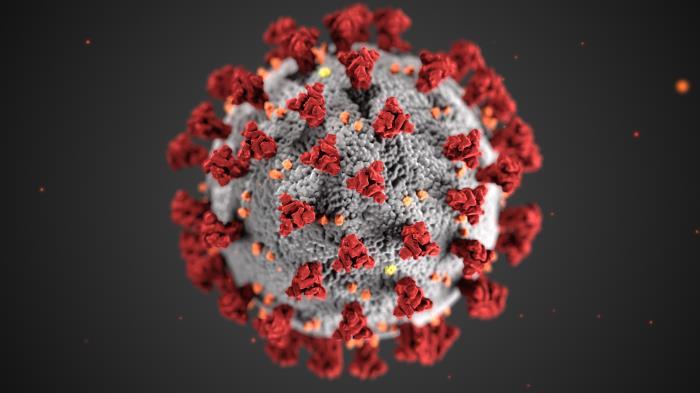


Joseph R. Anticaglia, MD
Medical Advisory board
COVID is an unfinished story. The early chapters of SARS-CoV-2, or COVID-19 were written after the virus was initially identified in December 2019. The following spring, March of 2020, the World Health Organization declared it a global pandemic. Effective vaccines and treatments were developed to manage COVID-19 patients. What became apparent were the worrisome symptoms which persisted after the acute phase of the disease. The constellation of those symptoms were called “Long COVID.”
Researchers at the University of Pennsylvania (PENN) have written another chapter concerning long COVID-19.. In October of this past year, Andrea Wong and her colleagues at PENN reported in the scientific journal Cell that low levels of serotonin is linked to the symptoms of Long COVID.
Serotonin is a hormone the body uses to send messages. It is a neurotransmitter that relays nerve messages between the central nervous system (brain cells) and the peripheral nervous system (nerve cells in your body). The body produces serotonin naturally by converting the amino acid tryptophan, with the help of vitamin B6, to serotonin. Ninety percent of serotonin is produced in the intestines. Only ten percent is produced in the brain. Serotonin plays a role in regulating digestion, sleep, nausea, wound healing and bone health.

CDC reported that more than 40% of adults in the United States described having COVID-19 in the past, and nearly one in five of those (19%) are currently still having symptoms of “long COVID.” Such symptoms might include shortness of breath after minor exertion, chronic fatigue, “brain fog,” headaches, memory problems, sleep disturbances, and depression.
The researchers at PENN determined that some long COVID patients had traces of the SARS-CoV-2 virus in their stool samples even months after acute COVID-19 infection. This suggested that parts of the virus remain in the gut of a certain number of patients long after the infection. They called the persistence of the virus in the gut the viral reservoir.
The persistent COVID viruses in the gut reservoir stimulate the immune system to fight COVID with proteins called interferons. Interferons cause inflammation in the GI tract which reduces the absorption of the amino acid tryptophan, the building block for serotonin causing lower levels of serotonin.
The PENN scientists theorized that persistence of COVID-19 in the GI tract triggers inflammation in the gut that reduces the absorption of tryptophan; which in turn lowers the levels of serotonin causing adverse effects on the vagus nerve (reduced vagal signaling) leading to memory problems and other neurologic and long COVID symptoms. They cautioned that more work needs to be done.
Another chapter in this unfinished story may deal with the tryptophan diet, the role of medications such as SSRIs (Selective Serotonin Reuptake Inhibitors) in treating long COVID and the usefulness of biomarkers in managing this debilitating condition.
Muscle abnormalities worsen after post-exertional malaise; January 4, 2024
Research led by Brent Appleman at Vrije University Amsterdam (VU) and Amsterdam UMC identified post-exertional malaise in patients with Long COVID. He and his colleagues reported the malaise is “associated with a worsening of fatigue- and pain-related symptoms after acute mental or physical exercise.”
The researchers compared a group of 25 symptom free, post-COVID-19 patients to a group of 25 patients with long COVID. Both groups were asked to use a stationary bike for about 15 minutes so as to identify the patient’s maximum exercise capacity.
In this study the researchers systematically induced post-exertional malaise. Their findings included:
The above findings help to explain the development of post exertional malaise in patients with long COVID
Andrea C. Wong, et al; Serotonin reduction in post-acute sequelae of viral infection; Cell, October 16, 2023
Brent Appelman, et al; Muscle abnormalities worsen after post-exertional malaise in long COVID; Nature, January 4, 2024
CDC; National Center for Health Statistics; Nearly one in five American adults who have had COVID-19 still have long COVID; National Center for Health Statistics, June 22, 2022
Cleveland Clinic; Serotonin; Joseph R. Anticaglia, MD; Long Term Effects of COVID-19 The Unfinished Story of Long COVID—Long Haulers; March 15, 2021, Doctor’s Column HC Smart
Vagal signaling is the transmission of signals between the brain and nerve cells in your body. The vagus nerve, which is part of the parasympathetic nervous system, relays these signals or messages, for example to the digestive system and the heart.
Long Covid is also called Post-acute sequelae of COVID-19 (PASC), and “Long Haulers.”
This article is intended solely as a learning experience. Please consult your physician for diagnostic and treatment options.